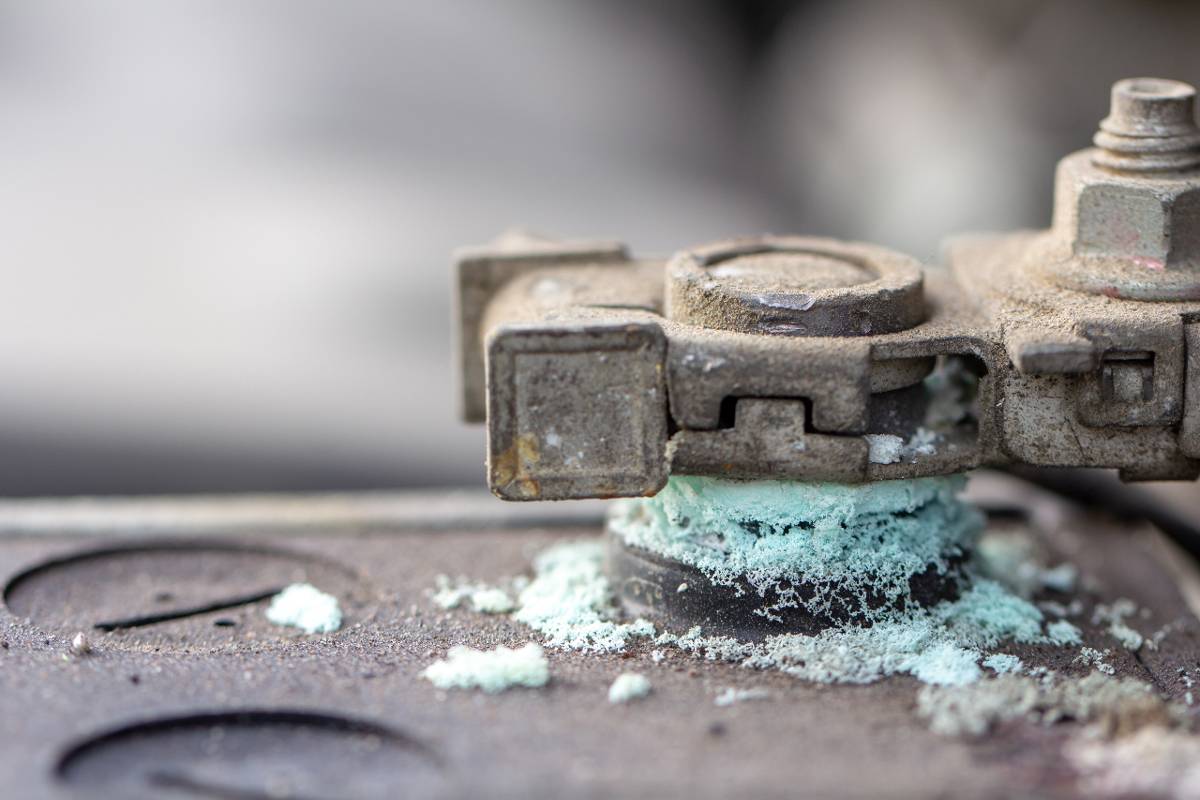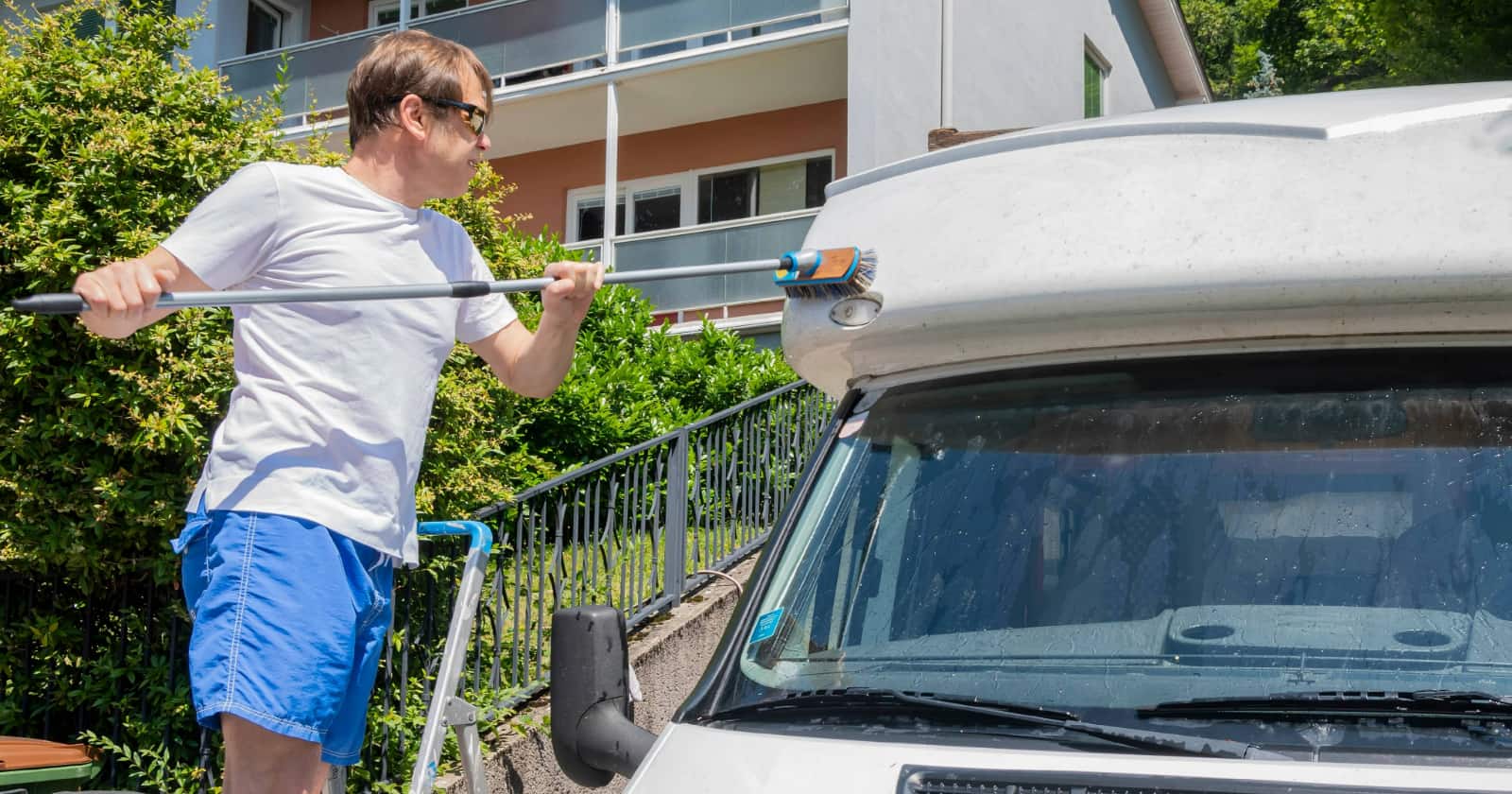How To Fix A Leaking RV Battery
Batteries are a vital part of your RV journey. If you want to boondock, you need your RV battery. Having a battery that is leaking is problematic for your comfort but is also dangerous and should be dealt with immediately.
Normally, when properly maintained, an RV battery should last around six years. However, you can probably expect to replace your batteries a little more often than that.
No one wants to spend money, and you certainly want to get all the life out of your battery that you can. Read on to learn what to do about a battery leaking and how to maintain your battery to get the most out of it.
Why do RV batteries leak?
Batteries in your RV can leak for several reasons. If the batteries are old or not well-maintained, they can leak. If the batteries were subjected to freezing cold temperatures, it is likely that the battery froze and caused cracks in the housing.
Properly maintaining your batteries doesn’t take a lot of time but is critical to keeping your batteries in good shape.
How do I know if my RV batteries are leaking?
If you notice a smell like rotten eggs coming from your battery, which is sulfur or even ammonia, it could be an indication that the cell’s casing is cracked and leaking acid inside your battery.
You need to replace your battery right away once harmful fumes are released. The leaked acid can cause corrosion and damage to surrounding components.
You might also see corrosion on your batteries. This happens when the battery’s acid releases hydrogen gas onto the battery terminals. The acid mixes with other elements in the air, creating the physical corrosion that you can see. It can be white, green, or a green/blue color.

How to avoid leaky batteries
Aside from physical damage to your batteries, you can mostly avoid leaks by properly using and maintaining them.
Lead-acid batteries offer uninterrupted power supply, power storage, lighting, and ignition power. This kind of battery uses positive and negative plates immersed in a sulfuric acid electrolyte to create a chemical reaction. The reaction generates positive ions, which make a positive charge.
How do I properly maintain my RV battery?
Check the fluid levels for your lead-acid battery on a regular basis. The plates of the battery should never be exposed. This could cause damage to the battery. If you need to fill it up, use distilled water before charging it.
This is also a common reason why your battery keeps dying.
You do not want to undercharge or overcharge your battery. When you overcharge your RV battery, you can corrode the positive battery plates. In an overcharged position, the battery also uses more water. You can also overheat the battery by overcharging. The more sulfate or corrosion that develops, the shorter the lifespan of your battery.
Also, do not run down lead-acid batteries more than 50 percent. This can also cause permanent damage.
Undercharging a battery means not allowing the battery to return to 100 percent capacity. Making a habit of doing this will quickly destroy your battery.
When temperatures drop below freezing, the electrolyte in the battery can freeze. When these liquids freeze, they expand and can cause cracking and leaks.
Keep in mind that a fully charged lead-acid battery can withstand pretty low temperatures. A partially discharged battery will begin to freeze sooner. That is yet another reason to maintain your battery.
What to do if your RV battery leaks
Generally, if your battery leaks, you need to replace it. You want to be fully powered for your next adventure. If you don’t have ideal battery conditions, you might be stranded or have problems with the chemicals that are leaking; both present smell and safety issues.
How to dispose of batteries
Lead-acid batteries can be disposed of through a recycling service, scrap metal dealers, or a car repair shop. You can also check with businesses such as Home Depot, Lowe’s, Best Buy, or Staples that recycle electronics. They may also take batteries.
It is illegal to dispose of a lead-acid battery on any land including landfills, lakes, streams, or the ocean.
Is there a better alternative to lead-acid batteries?
Lithium batteries are a great choice to replace lead-acid batteries. You can consider lithium batteries an upgrade, but there are positives and negatives to that choice.
Lithium batteries are generally half the weight but twice the power of lead-acid batteries. A lithium battery also provides 80 percent discharge, compared to 50 percent from a lead-acid battery. So, over the life of the battery, you will have more usable power without having to recharge as often.
These batteries also charge faster, which means less reliance on solar panels, generators, or other power sources to recharge your battery bank. They also do not corrode, but they are more expensive, about two to three times the cost of lead-acid, but the offset of that is they tend to last longer than lead-acid batteries. They are also more sensitive to heat and cold.
When not in use, lithium batteries should be stored in a cool, dry environment at 50-70 percent of charge. This will help to maximize the battery’s lifespan.
Check out this article on lithium batteries vs. lead-acid batteries for more great information.
More tips on RV battery maintenance
RV batteries have a big job to do, and you want to keep your batteries in good shape and reliable for your RV life. The health of your batteries is vital, so replace them when necessary to protect your appliances, electronics, and battery chargers. Here are some signs that your need to replace your RV battery.
- You can hear corrosion inside your battery. Corrosion happens when your battery is leaking. If you hear any sloshing or bubbling noises, there could be acid leaking inside.
- Your battery recharges slowly.
- You notice a bad smell coming from the battery. If it smells like rotten eggs or ammonia, this could be a sign the cell’s casing is cracked, and acid is leaking inside your battery. Replace your RV battery right away to stay safe from harmful fumes and damage to surrounding components.
- You notice cracks and holes in your battery. If you notice any cracks, holes, or other signs of damage, it is definitely time to get a new one. Damaged batteries are less reliable and could fail while you are on the road, leaving you stranded.
Finally, just don’t mess around with a leaking battery. A new battery will be more reliable and keep you thinking about your next adventure rather than making you concerned about whether you will have power for your trip.
Track your RV maintenance & repairs
Make sure you keep track of all your RV maintenance and repairs with an online tool such as RV LIFE Maintenance. Not only can you keep all of your documents in one place, but you’ll also receive timely reminders when maintenance is due to help you avoid costly repairs and potentially serious accidents.
Related articles:



